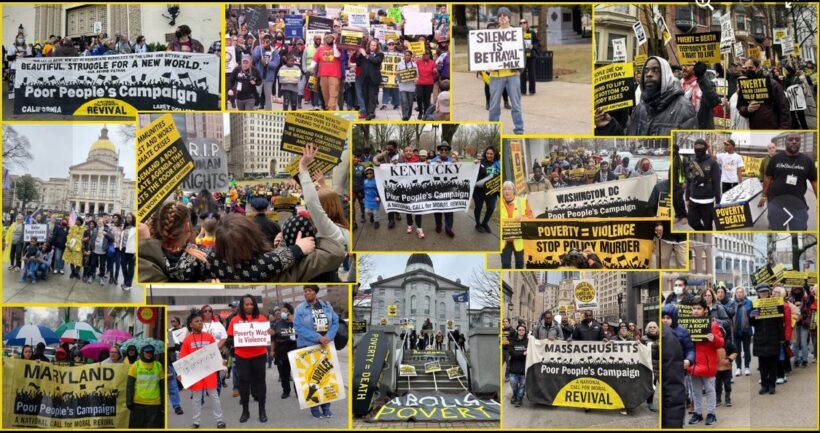This April 4 marks 56 years since the assassination of Martin Luther King, an immortal icon of the nonviolent struggle against discrimination and for equal rights and opportunities.
The night before, King told a group of striking sanitation workers in Memphis, Tennessee: “We must commit ourselves to this struggle to the end. Nothing would be more tragic than to stop here in Memphis. We must see it through to the end”.
King believed that the struggle in Memphis highlighted the need for economic equality and social justice, which he hoped his Poor People’s Campaign would highlight nationally.
King saw the Poor People’s Campaign as the next chapter in the struggle for true equality. Desegregation and voting rights were essential, but King knew that African Americans and other minorities would never achieve full citizenship until they had economic security. Through non-violent direct action, King and the SCLC hoped to focus the nation’s attention on economic inequality and poverty.
Seeking a “middle ground between rioting on the one hand and timid pleas for justice on the other,” King planned for an initial group of 2,000 poor people to travel to Washington, D.C., southern states, and northern cities to meet with government officials and demand jobs, unemployment insurance, a fair minimum wage and education for poor adults and children to improve their self-image and self-esteem.
Their call did not go unheeded. The Poor People’s Campaign is alive and well and has taken up this unfinished work. From Alaska to Arkansas, from the Bronx to the border, people are coming together to confront the interlocking evils of systemic racism, poverty, ecological devastation, militarism and the war economy, and the distorted moral narrative of religious nationalism.
Building on the transformative history of the First Reconstruction after the Civil War and the Second Reconstruction of the civil rights struggles of the 20th century, the movement’s premise is based on the idea of a Third Reconstruction as a revival of the constitutional commitment to establish justice, ensure general welfare, end decades of austerity, and recognize that policies focused on the country’s 140 million poor and low-income people are also good economic policies that can heal and transform the nation.
The Poor People’s Campaign believes that nonviolent struggle has the power to end these injustices, to shift the narrative from individual shame or blame to systemic causes, and to transform our society.
It has adopted a Nonviolence Covenant as its methodology of action, drawing on the lessons of historical nonviolent social movements and the experience of building the Campaign.
After years of continuous action, in June 2023, hundreds of Poor People’s Campaign leaders from more than 30 states converged on Capitol Hill for three days to call the nation’s attention to the reality of poverty in the country, to call it a death sentence in the United States, and to demand action to end this political murder.
With the election campaign underway, the Poor People’s Campaign has put on an impressive show of activism, mobilizing in more than 32 states to demand that lawmakers fully address poverty and end the immoral war on the poor.
On the occasion, Rev. Dr William J. Barber, II, current co-chair of the Campaign, said:
“Nobody talks about this political genocide. Today we are determined to be a voice, a resurrection force […] In our campaign across the country, we have signaled that we will no longer be silent. We are here, we will be seen, we will be heard and we demand that our power be felt.
In a country where democracy has been hijacked by corporate economic power, the voice of non-violence is resurfacing as a cry for justice from the heart of the American people.
In describing the way of life and struggle to which members of the Campaign aspire, the final lines of the Nonviolence Covenant state:
“In committing myself to these principles, I will harness the power and strength of the soul that exists within each of us. I will ground myself firmly in nonviolence as a moral and spiritual philosophy, practice and discipline. I will strive to embody the values of courage, inclusiveness, justice, truth and love for all that connect me to every human being.






